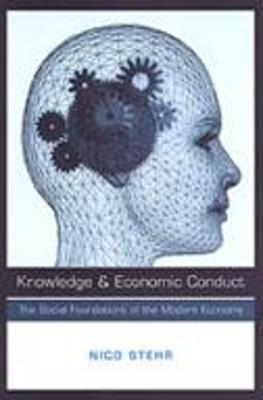Studies in Comparative Political Economy and Public Policy
1 total work
Examining the foundations of the modern capitalist economy from a broad social scientific perspective, this challenging work draws on economics, sociology, political science and geography. The author posits that changing economic circumstances - namely, an end to the primacy of labour and property as determinants of prosperity - have created a need for a new theoretical platform: one that transcends standard economic discourse. In Nico Stehr's view, knowledge is now the most significant source of economic growth - the 'prime productive factor'. This shift has ambiguous ramifications: Will it bring a more sustainable, less ecologically disruptive form of production, or escalating levels of unemployment? Questions of personal engagement are raised: What to be apprehensive about? Where are the possibilities for action in a context where such possibilities are being limited? This book will appeal to students and social scientists with an interest in technology, globalization and the changing economy. It is accessibly written and relevant to researchers and policy makers within the public and private sectors as well as an academic readership.
